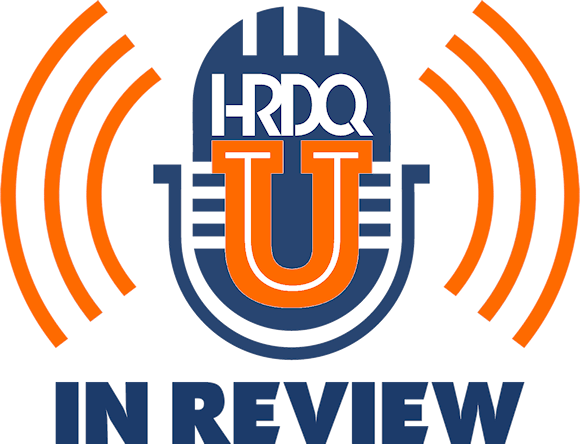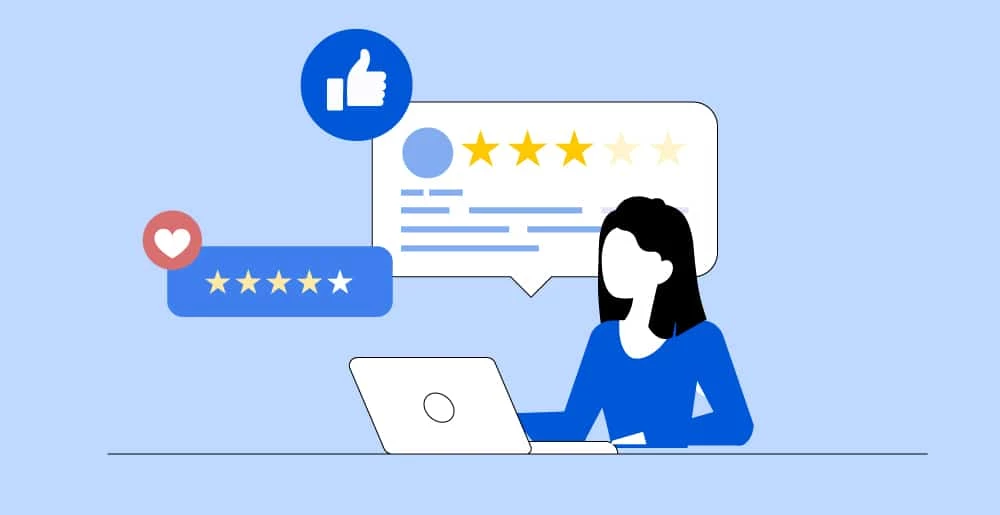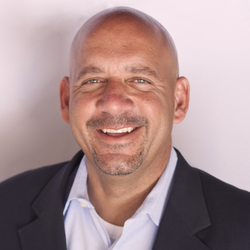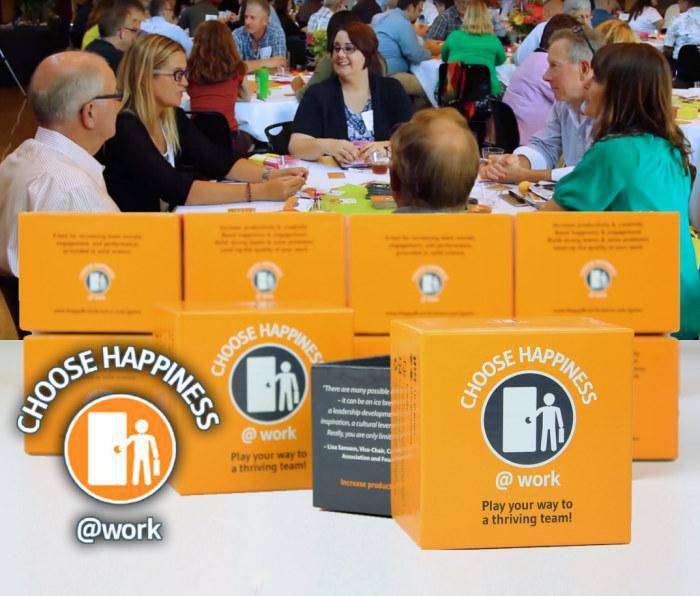Log In
View Upcoming Events


We are joined by Devin C. Hughes as he takes a deeper dive into the webinar titled Workplace Wellness that Works for Everyone. Devin, a captivating speaker, author, and culture expert, shares his expertise on aligning and improving workplace culture with increased engagement. With a unique perspective drawing from positive psychology, neuroscience, and mindfulness, Devin offers concrete strategies for creating positive change.
This engaging conversation will leave you with actionable takeaways on behavioral change, empowering employees to make healthier choices, fostering organic connections, and applying research to strengthen connection points. Tune in now to gain valuable insights on promoting well-being in the workplace and improving workplace culture.
00:01
Welcome to this week’s episode of the HRDQ-U In Review Podcast, where we bring you the latest insights and practical tools for enhancing soft skills training in your organization. This podcast is brought to you by HRDQ.com, and I am your host, Sarah, Learning Events Manager at HRDQ-U. Today, I will be discussing a webinar with Devin C. Hughes that he presented titled, Workplace Wellness That Works for Everyone.
00:27
Devin and I have partnered together on many webinars over the years and they’re always really fun and enjoyable sessions with some awesome takeaways. And you will for sure leave feeling better than when you joined. So if you have yet to listen to the latest webinar of this event, I highly recommend doing so. And with all of that said, thank you so much for joining me today, Devin. Thanks for having me. Super excited to be here today.
00:53
And so let’s get catch everybody up to speed. So can you let us know a little bit about who you are and what you do? Yeah. So I have a fascinating career. At least I think so. I speak professionally. I write, research and consult for a living. My area of expertise is specifically organizational culture. I do a lot of work around employee engagement, diversity, equity and inclusion, employee experience, et cetera.
01:21
There’s a little bit of a twist though, is that all of my work integrates the science of positive psychology, which includes positive organizational research, appreciative inquiry, mindfulness, mindset, et cetera. And I have the distinct honor to consult, speak, and work with organizations all over the globe. Wow, well, that sounds like it’s really exciting, I’m sure really fulfilling.
01:46
Absolutely. And I’m sure there’s a little kid up there somewhere wondering one day they could grow up and be like me. I’m sure of it. And so before we get into the content of the webinar and the details behind that, I always like to ask my guests that join me is, you know, what changes do you see that are happening in the L&D space right now?
02:11
Pretty interesting times as you can imagine, right? There has been no playbook, no toolkit how to lead post pandemic. We are literally figuring it out on the fly. And the great resignation has shown employers specifically in the US that if you don’t treat yourself and treat others in a good way or treat them appropriately, they’ll leave.
02:38
And so I’m finding that wellness and wellbeing are significant issues and interests for all employees, especially now on the onset of the pandemic. And so it was fascinating, Sarah, because I saw some research yesterday at a LinkedIn where they looked at employers who had job postings.
03:03
and job posts that mentioned wellbeing, flexibility, and company culture were getting more views and applications than those that did not. Pretty interesting stuff. That is really interesting. And in your research and your experience, do you see that more companies are implementing more of these wellbeing and wellness standards into their workplace? I think it’s hit or miss. I think it’s definitely something that’s come up.
03:32
I will caution you, some of it seems a little bit performative. And what I mean by that is performative in that, you know, we’re gonna have a bunch of activities that are planned outside of work. We may give you a gym membership, we may do a variety of things. We may invite you to different events. But I would argue that if well-being is a significant part,
03:57
of your strategy, then you need to treat it like that and it needs to be integrated into the work, not an adjunct to the work. Oh yeah, absolutely. And so let everybody know, you know, what exciting things are you up to next? What do you have in your pipeline? Well, I’m working on a new kid’s book. Most people don’t know that, although I’ve written quite a bit, I have a real passion for children’s literature.
04:24
One, they’re not as hardwired and jaded as us adults, including myself in that conversation. And if you can change the way a kid thinks about himself, their well-being, their mindset, you can change their life. And I know this all too well from my backstory. So I’m working on another kid’s book right now so that kids can grow up and think about what is versus what isn’t. Wow, that’s amazing. That’s a new fact for myself to learn about you as well. That seems like it’s
04:52
a really fulfilling professional focus I could only imagine. Yeah, I mean, it absolutely is. I mean, had no idea. Many people don’t know me. They look at where I am now, and they make presumptions about how I got here, not realizing that I couldn’t read until I was in the fifth grade. Yeah. I was in special ed. And I say that because I’ve written over 20 books, I’ve traveled over 15 countries, I’ve graduated degrees, I’ve done a lot of things.
05:20
And that’s not the brag, it’s just you’re looking at a kid who couldn’t read until was in 11th, I mean, to fifth grade. The thing that changed about me was that I had people who believed in me before I could believe in myself and surrounded me in an environment that changed the way I thought about my future. And so that’s my passion for children’s literature, because I think there’s other Devin C. Hughes’s running around looking for some inspiration too about who they can be. Wow, I think that that’s an amazing story. That’s really great.
05:50
And so now kind of reeling it back into more about the webinar topic itself, workplace wellness that works for everyone. For those that did not join the session, as well as a refresher for those that did join us during that event, what were the key takeaways for the registrants at that event? Yeah, so there was a few. So I’ll give a little bit of backstory and context. If I say to everyone who’s listening today, do you perform better when you feel better?
06:20
Or are you at your best when you feel your best? Invariably, 100 % of the hands grow up. And I realized this early in my career. I was at my best when I felt my best. And I’m like, wow, what if, instead of it being hopeful happenstance, what if you could create an environment where people could be in a better place more often? And I’m like, so that became the foundation of my work. And how it ties to the webinar is essentially that I think that
06:49
I provided some actionable takeaways for tackling this massive obstacle behavior change. And that there’s some things you can do based on science to learn how to design and implement approach that can benefit your organization and the employees. That’s one. Second, give people some creative approaches to empower employees to actually make better choices in the workday itself. Whether it be eight, nine, 10 hours a day, some things you can do that are practical, a menu of things that you could do.
07:17
Number three, how do you design steps that are organic? Because not everyone’s gonna meditate, not everyone wants to work out, but there’s other things that you could do in the sandbox of wellness to make it easier for people to opt in and be a better version of themselves. So those are at least three of the takeaways from that webinar. Great, and we had a really active audience with us during this webinar. We had some really great questions and we weren’t able to answer all of those. We’ll bring that back today.
07:47
And what are some effective strategies or initiatives that organizations can implement to promote mental health and wellbeing in the workplace? Now, this sounds pretty obvious, but what I find is what’s obvious to me is not obvious to everybody else. And one of the most effective strategies or initiatives that organizations can implement is talk about it. You see, we talk about things that matter. Leaders signal what matters and they signal what doesn’t. If mental health
08:16
or well-being does not come out of your mouth and it doesn’t become socialized and normalized, it’s clearly not that important. So again, so how you start a meeting, how you end a meeting is often as important as what happens in the meeting. I tell people how you enter spaces matters. So again, human beings are emotional. We’ve been taught that we’re thinking machines that feel. I would argue that we’re feeling machines that think.
08:44
And being able to tap into that emotional culture is a big deal. So the answer to that question is talk about it, socialize it, and start with yourself. If you’re struggling with your own well-being or mental health, normalize it. Hey folks, I’m struggling right now for variety of reasons, and I just want to say it. So if I’m a little bit short, or a little bit not present, reel me back in. So you know I’m working on me to be a better version of me. That’s always a good step.
09:11
And to add to that, how can employers create a supportive and inclusive work environment that encourages physical fitness and healthy lifestyles among its employees? So the best way that I’ve seen is to literally integrate it into the work itself. Now, I would say this, say that’s, you know, whether you’re hybrid, remote, et cetera. I mean, everyone intuitively gets physical fitness that again, we need to have some level of movement. I mean, intellectually, I don’t think you have to debate that.
09:39
But what I found some really, really ingenious ways that people can integrate it into the day is, for example, a lot of things we do at work, we haven’t changed in 50, 60 years, routines. We just sit in the same room, we do the same thing. You sit on one side of the table, I sit on another, on the other end of a webcam, et cetera. So one ingenious way that I’ve seen people integrated in, how about walking meetings, What if we had a team?
10:07
And we’re on a walk. What if our interviews are via the walk? What if we actually incorporated physical fitness into the day? What if we took a break every 50 minutes or 55 minutes and got up and stretched? Or took two or three minutes at the end of an hour and took a pause for a little mindful moment and closed our eyes and did some breath work or meditated or journaled? So I would argue that the more it’s integrated into the work and the more options you create, more inclusive work environment, encouraging more people to participate. Great.
10:37
And what are the benefits of incorporating mindfulness and stress reduction techniques that you had mentioned into the workplace? And how can employees integrate these practices into the daily routines of their employees? You had mentioned walking meetings, which I think is great. So it’s fascinating, right? Because if you look at the data right now, we’ve got more lonely adults right now in the US than we’ve ever had. For example, just recently I was in the UK, and they now have an ambassador of loneliness, someone in government.
11:04
clearly showing that we have a lot of lonely folks right now and we don’t have work brains and home brains. We got one brain. And so I say that if it’s looking at the data, so loneliness is an issue. Employee disengagement is an issue. Quiet quitting, you name it. Folks right now are upside down emotionally. So those are some of the benefits of incorporating mindfulness in some of this to help people be a better version of themselves. Now I gave you a few ways to integrate that and the daily routines are
11:33
really, really important. So what I would suggest on an individual and an organizational level, look at all the things that show up on your calendar. You put things on your calendar that mattered and many of those things are routines. I would argue based on my work that a lot of those things, actually most of those things called routines need a little bit of a makeover. If you’re like me, Sarah, and a little bit corny, you like those makeover shows on HGTV or Chip and Joanna in Waco, Texas,
12:01
Absolutely. Where they go into a home and they do a little bit of a makeover and the people come back, and the home is completely different. I would argue if you look at some of the routines that we do daily, weekly, monthly, quarterly, a lot of those teams lean a little bit of a makeover and you can integrate some mindfulness and some stress reduction into the routines itself.
12:25
Now, do you think that technology and social media is having an impact on the loneliness that we’re experiencing in the world today? Yeah, so I’m not anti-technology, nor am I anti-social media, though I am not naive. And I think there need to be boundaries, right? Because we know from the research that human beings are social animals. We’re better around people.
12:51
Now there’s degrees, right? We have introverts, extroverts, I get it, but as a species, we’re better when we’re together. And too often right now, in lieu of connecting with other human beings, it’s easier to fall into the lowest common denominator, which is your phone. Or in some cases Netflix or whatever modality you might have. So I certainly think, like most things, you need guardrails and too much of anything can certainly can be problematic. So I think it’s everything
13:21
know, but I think the more that we can socialize and being around human beings, we could certainly help dissipate some of this addiction to the technology. And, know, in what ways can organizations address work-life balance challenges and promote employee well-being, particularly in high stress industries or demanding job roles? Yeah. So a couple of ways. Number one, the organization
13:47
should make a proclamation and talk about it. I talked about that earlier. We signal what we talk about, right? So again, you need to open it up. Number two though, if your leader, your boss, however you define that human being and who you report to, if they do not talk about it too, it doesn’t matter so much what the organization talks about. So I remember coming up, Sarah, when I would take PTO vacation, I’d come back or just before I left and people would go, oh, wow.
14:17
must be nice, you got time for PTO, like some of us have real work to do. So then you feel a sense of shame that you’re taking PTO or you’d go on PTO. In a lot of cases, Sarah, you would check email in the morning or late afternoon and you’d normalize it because you felt like you didn’t want the emails to apply. I think having conversations like this about some of the things which I call norms that we have normalized.
14:45
is healthy conversation and the more that we can do it, the better. Now I’ll pivot and say this. What I’m talking about there is having a really high degree sense of what we call psychological safety. That we can talk about hard stuff and there’s a stigma around it. I think the more we can talk about it, socialize it and make it a part of the narrative, it’s okay to one, acknowledge that I’m stressed out, but two, here’s some things that I need for myself and for the team to move to a better place. That’s always a healthy start.
15:14
And how can companies foster a culture of open communication and emotional support to address and mitigate workplace stress and burnout? Well, it is certainly not easy. I would say, again, intellectually, most of us get it, but you need to equip your managers with some talking points and a toolkit and you need to follow up. So again, I would argue in your one-on-ones with the folks on your team, in your team meetings,
15:43
that well being or workplace wellness again should not be hopeful happenstance. It needs to be on the agenda. That I mean literally again that you need to talk about it for the first five minutes. And I would say again how you start your meetings and how you in your meetings clearly signal to your folks how real this is and normalizing these conversations is a really, really big deal. And I’ll leave you with this. There’s an organization right now that I won’t name them but they use certain
16:12
terms to normalize having conversations and the term that they use is a little bit coarse, Sarah. They call it vomit. And I think we all know what that is. And we don’t mean literally vomit, but they use it as a euphemism to say that sometimes you need to get people in the room to just talk about it. That we’re all struggling. We’re all feeling it. And can we just let it out in order to let it out? We have to let it, you know, we have to let it go.
16:40
And so again, these are things that organizations have done to normalize talking about workplace wellness and open in the lines of communication. Yeah. Well, that’s great. And Devin, before I leave you go today, where can listeners go to learn more about your work? Certainly. So you can certainly find me on LinkedIn. Again, Devin C. Hughes. can go to my website, DevinCHughes.com. I’m on Twitter, Instagram, Facebook, you name it. I have a blog.
17:10
once a week on Monday, I’ve got a newsletter on Friday, pretty active on social media, a lot of different platforms, sharing research tools, application, you name it, to continue to evangelize this conversation. Great, yes, make sure they go check out Devin on all of his social media sites there and his website. You can also click the link below to watch.
17:34
the recording of this webinar that we were discussing today. Thank you so much, Devin, for your time and for sharing such great information about this really important topic. Well, thanks so much for having me. And I’m glad you gave me the platform to talk about this much needed topic. Yes. And thank you all for tuning into this week’s episode. We hope you enjoy listening to the HRDQ-U In Review podcast, available on all major streaming platforms.
18:00
If you did enjoy today’s episode, make sure to give us a follow and leave us a review. Catch you next time.


Listen to this podcast event at no charge with your
HRDQ-U Free Access Membership
We are joined by Devin C. Hughes as he takes a deeper dive into the webinar titled Workplace Wellness that Works for Everyone. Devin, a captivating speaker, author, and culture expert, shares his expertise on aligning and improving workplace culture with increased engagement. With a unique perspective drawing from positive psychology, neuroscience, and mindfulness, Devin offers concrete strategies for creating positive change.
This engaging conversation will leave you with actionable takeaways on behavioral change, empowering employees to make healthier choices, fostering organic connections, and applying research to strengthen connection points. Tune in now to gain valuable insights on promoting well-being in the workplace and improving workplace culture.
[ PODCAST PLAYBACK ]
You must be signed-in with your membership account to access this content.
Enjoyed this podcast? Have suggestions on how we can improve? Please take our quick survey and receive a coupon for 15% OFF any of our individual membership plans.

*Instant 15% coupon available upon completion of survey.
Want to learn more? Become an Individual or Corporate member to watch this and hundreds more webinars!
Take a fresh look at how to promote employee well-being in the workplace. Gain tangible tools and immediate takeaways needed to start making a difference in employees’ health and happiness and promoting an overall culture of well-being throughout an organization.

Devin C. Hughes
Devin C. Hughes is an author, speaker, consultant, executive coach, and internationally recognized expert in the science of happiness, organizational/culture change, and leadership development. He has lectured and worked with a variety of Fortune 100 companies, as well as the Secret Service, the IRS, and an assortment of profit and nonprofit organizations. Devin is the author of 20 books and has lectured in more than 15 countries. He lives in San Diego, California, with his wife, four daughters, and two rescue dogs.
Connect with Devin on Facebook, X, Instagram, and at www.devinchughes.com.

Training Tools for Developing Great People Skills
This event is sponsored by HRDQ. For 45 years HRDQ has provided research-based, off-the-shelf soft-skills training resources for classroom, virtual, and online training. From assessments and workshops to experiential hands-on games, HRDQ helps organizations improve performance, increase job satisfaction, and more.

The Happiness Factory
Employees move through different “stations” in the factory, each representing various aspects of the workplace where organizations can create conditions that lead to higher engagement. Participants will see what they can do to increase engagement and happiness.
Buy at HRDQstore.com
Choose Happiness at Work
Explore over 50 workplace scenarios and 100+ solutions that address the scenarios. The solutions are divided into four categories: practicing positivity, reducing stress, achieving goals, and improving relationships.
Buy at HRDQstore.comThe HRDQ-U In Review Podcast, brought to you by HRDQU.com, brings you the latest insights and practical tools for enhancing soft-skills training in your organization. As a learning community for trainers, coaches, consultants, managers, and anyone passionate about performance improvement, we interview subject matter experts and thought leaders from recent webinars they presented with us to take a deeper dive into the content they shared and answer all your questions. Join us as we explore new ideas and industry trends, share success stories, and discuss challenges faced by professionals.
The HRDQ-U In Review Podcast is intended for HR and training professionals, organizational development practitioners, and anyone interested in improving workplace performance and productivity.
New episodes of HRDQ-U In Review are released every week.
The length of the episodes varies, but they typically range from 15-30 minutes.
The podcast covers a wide range of topics related to HR and organizational development, including leadership development, team building, communication skills, conflict resolution, employee engagement, and more.
No, HRDQ-U In Review is completely free to listen to.
You can listen to any available HRDQ-U In Review Podcast right on our website at HRDQU.com via our embedded Spotify player on the related webinar page. In addition to our self-hosted option, you can find the HRDQ-U In Review Podcast on many of the popular streaming services, which are listed above.